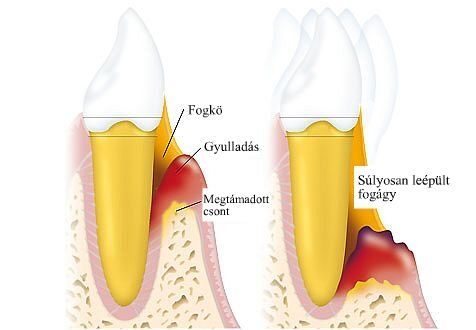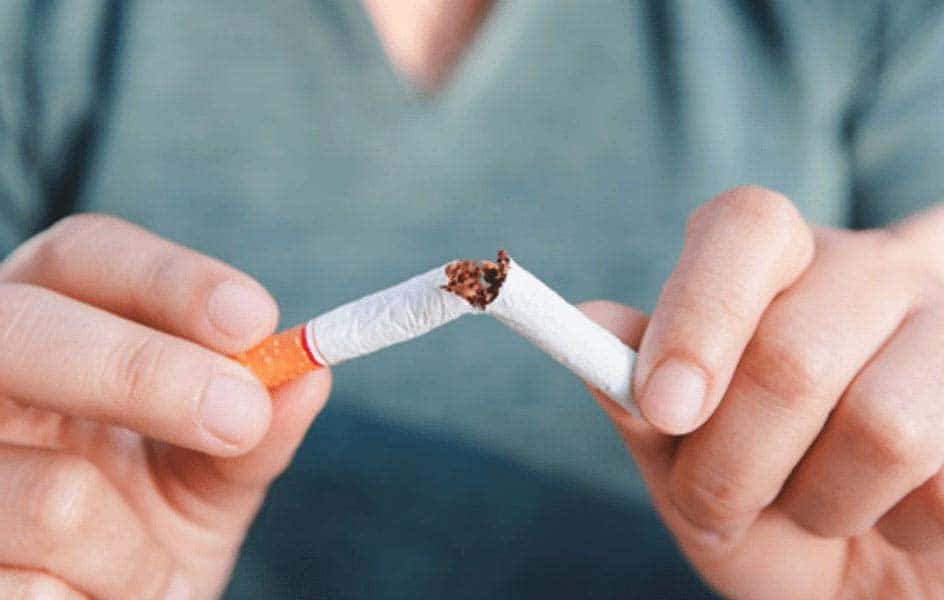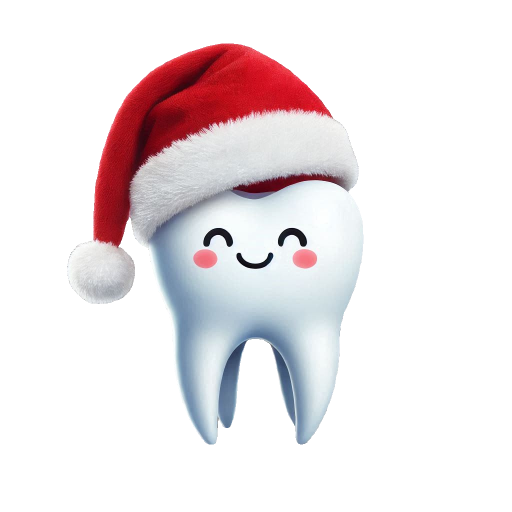Nowadays, we can find many types of tobacco products, such as cigarettes, hookahs, cigars, and electronic cigarettes. They contain thousands of toxic substances, including carbon monoxide, ammonia, formaldehyde, tar, and nicotine, the latter of which is responsible for the development and maintenance of addiction. Of course, smoking has a negative effect not only on the teeth and oral cavity, but also on our entire body, since long-term use can lead to cardiovascular and lung diseases, insulin resistance, diabetes, or even worse, lung and larynx cancer.
The Impact of Smoking on Teeth:
- It may discolour your teeth
 resulting in an undesirable aesthetic effect, which can also take a toll on patients' mental well-being.
resulting in an undesirable aesthetic effect, which can also take a toll on patients' mental well-being. - It leads to an increase in tartar buildup in the mouth.
- It diminishes the sense of taste and causes halitosis, or bad breath, due to the various combustion byproducts.
- Smoking is one of the primary risk factors for developing periodontal disease, as it accelerates the destruction of periodontal tissue, leading to faster and more severe damage compared to non-smokers. Smoking causes the exposure of root surfaces around the teeth and promotes harmful bacteria in the gum tissue, which over time can result in tooth mobility and bone loss. These processes often go unnoticed by the patient, but as teeth become loose, they may seek treatment only when it’s too late to save the affected teeth. If you smoke, it's crucial to attend at least an annual dental check-up, and more frequently if necessary. Even if you don’t experience symptoms, early diagnosis can lead to more successful long-term treatments.
- An interesting fact is that the clinical symptoms of passive smokers resemble those of both non-smokers and smokers.
- Smoking just five cigarettes a day increases the risk of oral cancer by a factor of 10. This is a significant concern in Hungary, where 1,700 people died from oral cancer in 2000, and the numbers have remained unchanged since then.
The effect of smoking on dental treatments:
- Smoking, due to its vasoconstricting effect, reduces the presence of immune cells in the oral cavity, weakening the body's ability to defend itself and promoting the development of oral diseases and infections.
- Smoking negatively impacts all dental treatments, from routine tartar removal to more complex oral surgeries, as the results are generally less successful compared to non-smokers.
- We can expect slower, more challenging wound healing and prolonged peeling.
- After surgeries or even simple tooth extractions, it's important to refrain from smoking for at least a few days. Smoking can significantly hinder the healing of fresh wounds and, in the worst case, may lead to inflammation, causing painful symptoms.
- Relapses are more common in smokers; for instance, tartar buildup needs to be removed more frequently in their case.
- Smoking also shortens the lifespan of dentures, as it can lead to inflammation around the implants, potentially resulting in their loss.
- The long-lasting effects of teeth whitening will be diminished by tobacco smoke, causing the yellow-brown discoloration to return more quickly.
It can be said that all forms of smoking negatively impact both the teeth and the overall health of the oral cavity. This affects not only physical health but also mental well-being, as unattractive teeth and bad breath can prevent us from smiling confidently. Everyone desires beautiful, white, and healthy teeth! That’s why it’s especially important for our well-being to quit smoking and schedule regular dental check-ups, allowing us to address any negative effects as soon as possible.



